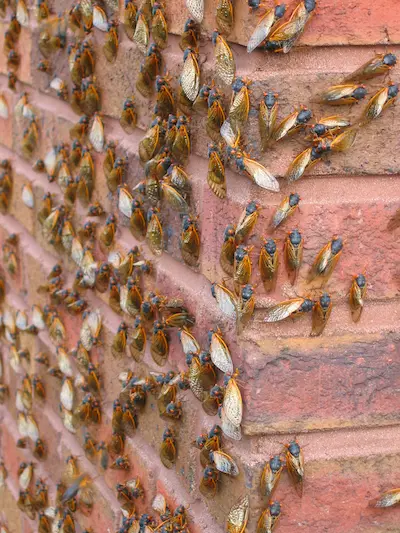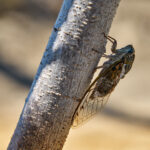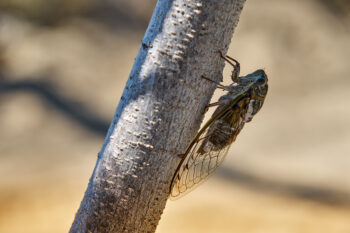
As the much-anticipated 2024 cicada emergence approaches in North Carolina, many homeowners may wonder how to safeguard their homes and gardens from the potential impacts of these fascinating but numerous insects. While cicadas are harmless to humans and pets, their sheer numbers and breeding activities can pose challenges for young trees, shrubs, and the tranquility of your outdoor spaces. Fortunately, with expert guidance from Bug Out, you can take proactive steps to protect your property without harming the cicadas or the environment.
Understanding Cicada Behavior
To effectively prepare for cicadas, it’s important to understand their behavior and lifecycle. Cicadas emerge from the ground after 13 or 17 years, depending on the species, seeking to mate and lay eggs. The females cut tiny slits in the branches of trees and shrubs to deposit their eggs, which can cause damage to younger or more vulnerable plants. Despite their intimidating numbers, cicadas do not bite or sting and are not interested in entering homes. Their presence is temporary, lasting about 4 to 6 weeks, after which they die, and the next generation begins its 13/17-year development underground.
Home Protection Strategies
Protecting Your Trees and Shrubs
- Netting: The most effective way to protect young trees and certain shrubs is by covering them with fine mesh netting. This barrier prevents female cicadas from accessing the branches to lay eggs while allowing sunlight and water to reach the plants. Ensure the netting is secured at the bottom to prevent cicadas from getting underneath.
- Delay Pruning: Postpone any non-essential pruning until after the cicadas have departed. Fresh cuts and new growth are particularly attractive to egg-laying females.
- Choose the Right Time for Planting: If possible, delay planting new trees or shrubs until the fall. This gives plants a better chance to establish themselves without the immediate pressure of cicada activity.
Keeping Cicadas Out of Your Home
- Screens and Seals: Check window screens, doors, and any other openings for gaps that could allow cicadas to enter. Repair or replace damaged screens and use weather stripping to seal gaps.
- Use Outdoor Lighting Sparingly: Cicadas are attracted to lights at night. Reduce outdoor lighting to minimize attracting cicadas to your home, or opt for yellow bulbs that are less appealing to insects.
Conclusion
The upcoming cicada emergence is a natural event that offers a unique opportunity to witness the wonders of the natural world right in our backyards. By taking proactive steps to protect your home and garden, you can enjoy this phenomenon without undue stress to your plants or disruption to your home life. Remember, cicadas play a crucial role in our ecosystem, and their brief appearance is a temporary reminder of the cycles of nature that surround us.





